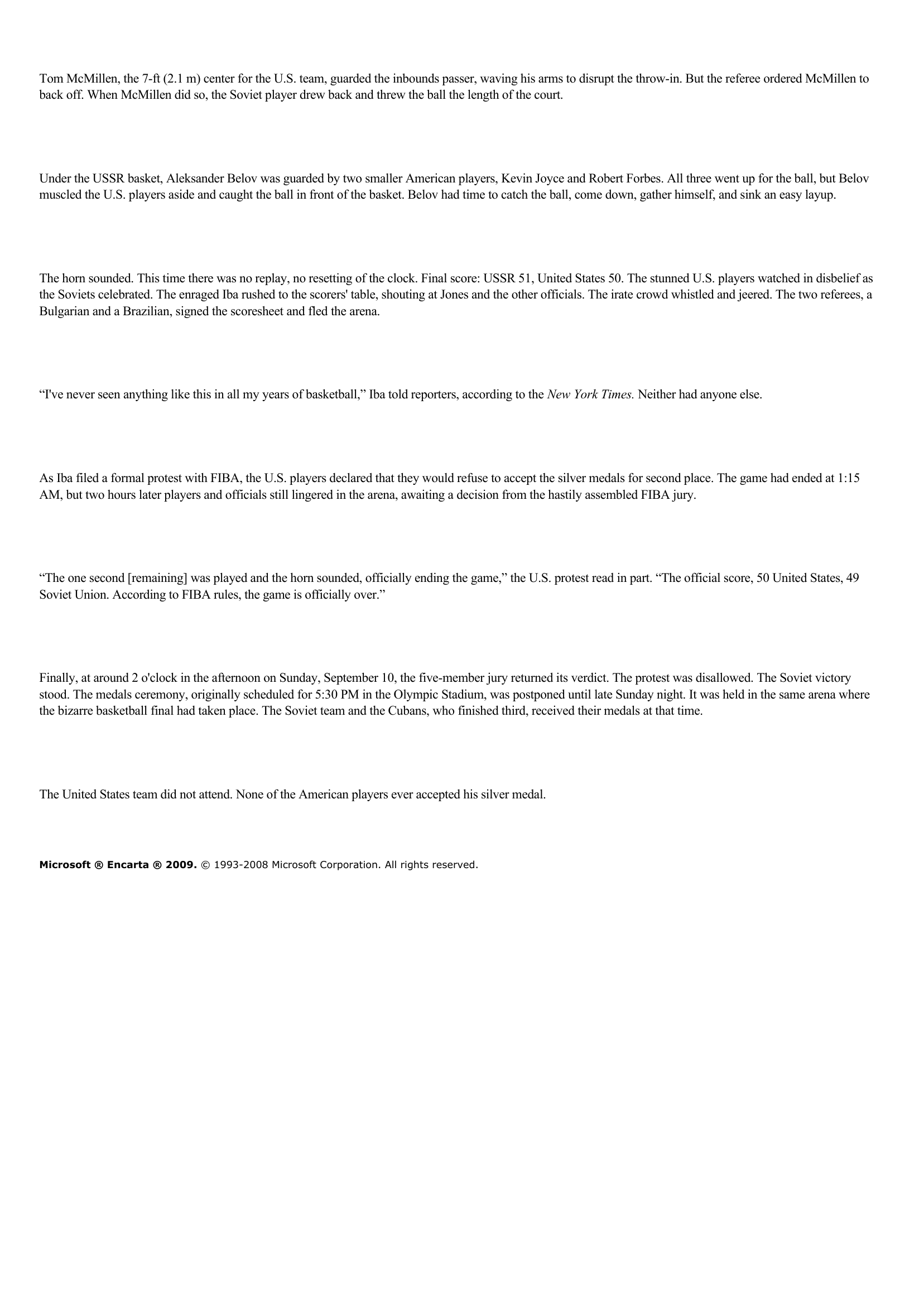USSR Defeats USA in Basketball.
Publié le 14/05/2013

Extrait du document
«
Tom McMillen, the 7-ft (2.1 m) center for the U.S.
team, guarded the inbounds passer, waving his arms to disrupt the throw-in.
But the referee ordered McMillen toback off.
When McMillen did so, the Soviet player drew back and threw the ball the length of the court.
Under the USSR basket, Aleksander Belov was guarded by two smaller American players, Kevin Joyce and Robert Forbes.
All three went up for the ball, but Belovmuscled the U.S.
players aside and caught the ball in front of the basket.
Belov had time to catch the ball, come down, gather himself, and sink an easy layup.
The horn sounded.
This time there was no replay, no resetting of the clock.
Final score: USSR 51, United States 50.
The stunned U.S.
players watched in disbelief asthe Soviets celebrated.
The enraged Iba rushed to the scorers' table, shouting at Jones and the other officials.
The irate crowd whistled and jeered.
The two referees, aBulgarian and a Brazilian, signed the scoresheet and fled the arena.
“I've never seen anything like this in all my years of basketball,” Iba told reporters, according to the New York Times. Neither had anyone else.
As Iba filed a formal protest with FIBA, the U.S.
players declared that they would refuse to accept the silver medals for second place.
The game had ended at 1:15AM, but two hours later players and officials still lingered in the arena, awaiting a decision from the hastily assembled FIBA jury.
“The one second [remaining] was played and the horn sounded, officially ending the game,” the U.S.
protest read in part.
“The official score, 50 United States, 49Soviet Union.
According to FIBA rules, the game is officially over.”
Finally, at around 2 o'clock in the afternoon on Sunday, September 10, the five-member jury returned its verdict.
The protest was disallowed.
The Soviet victorystood.
The medals ceremony, originally scheduled for 5:30 PM in the Olympic Stadium, was postponed until late Sunday night.
It was held in the same arena wherethe bizarre basketball final had taken place.
The Soviet team and the Cubans, who finished third, received their medals at that time.
The United States team did not attend.
None of the American players ever accepted his silver medal.
Microsoft ® Encarta ® 2009. © 1993-2008 Microsoft Corporation.
All rights reserved..
»
↓↓↓ APERÇU DU DOCUMENT ↓↓↓
Liens utiles
- USA et environnement
- usa
- Les USA entre 1941 et 1991 (histoire)
- Chine VS.USA
- USA: CERTITUDES ET HÉSITATIONS DE LA RECONSTRUCTION (1945-1960)


